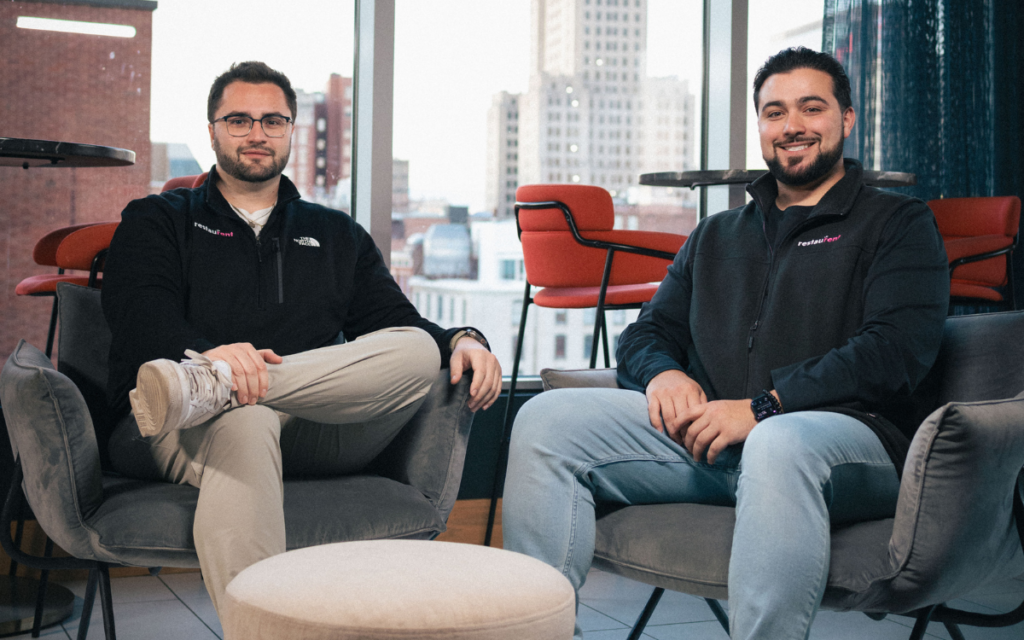The Secret Life of Quonset
Despite its importance to the state, few Rhode Islanders know what really goes on at Quonset Point.

Ray Silva and Jennifer Fortes. Photography by James Jones.
Ray Silva, General Foreman, Ports of America, and Jennifer Fortes, Union Longshoreman
Have you driven the Bentley Bentaygas yet? Unless you’re part of the 1 percent, the answer is probably no, since this luxury twelve-cylinder SUV costs nearly $200,000. But getting behind the wheel of a Bentley, Porsche or Audi is no big deal to Jennifer Fortes, who has worked for the last eleven years unloading imported cars from huge, ocean-going bulk auto carriers from around the world.
The money is good — Fortes and other members of the International Longshoremen’s Union Local 1329 get paid $34.60 per hour — but not Bentley good. “I don’t think I’ll ever own one, but I do get to drive one here,” says Fortes.
I meet Fortes aboard the Delhi Highway, a nearly 59,000-ton vehicle carrier docked at Quonset’s Pier 2 in Davisville after a particularly rough transatlantic crossing. Fortunately, both cars and crew arrived safely despite the twenty-foot waves, and today about seventy-five union longshoremen and women are unloading more than 1,500 cars from the Delhi Highway and the Swan Ace from Mexico, docked nearby.
Ray Silva, who has worked on the Davisville docks since 1958 and is now the general foreman for Ports America at Quonset, says his workers can unload up to a dozen ships per week, and up to 12,000 cars. In addition to drivers, Silva’s crew includes supervisors responsible for counting the cars as they come off the ship and parking them on the dock, “traffic cops” who help the drivers negotiate the parking garage-like interior of the twelve-deck ship and “lashers” who work ahead of the drivers, unstrapping the cars from the tie-downs that keep the cars in place during their journey across the ocean.
For Fortes and the other drivers, the job tends to be pretty repetitive: Silva expects each driver to maneuver about ten cars off the ship each hour, facilitated by a steady stream of passenger vans bringing drivers back from the dock to the next set of cars to move. But when you’re behind the wheel of cars costing six figures that someone has shipped from half a globe away, the tolerance for mistakes is close to zero.
“The cars are packed very tight,” says Silva. “These ships are all about money and space.”
“I don’t think the job is hard at all,” says Fortes, “but you have to be cautious at all times.”
The longshoremen’s union is surprisingly family oriented: Fortes’s mother works on the docks as well, as do Silva’s children and brother. In his sixty years on the job, Silva has loaded and unloaded everything from cement and lumber from cargo ships to food and liquor on Navy destroyers and minesweepers.
These days, apart from handling massive windmill parts destined for the Deepwater Wind farm off Block Island, the work is almost entirely unloading cars and moving them to the Quonset facilities of NORAD, which puts the finishing touches on the vehicles before shipping them to automobile dealerships across New England.
The job has helped Silva put three kids through college, but with his youngest daughter just about finished with medical school, he can see the end of the road ahead. With the growth at Quonset, Silva says he’d like to do more than play with cars in the next few years. “I just hope we get to work with some more fun things before I retire,” he says.
























